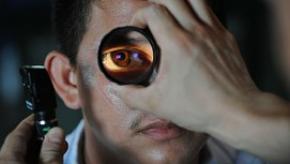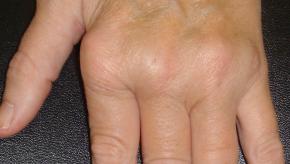Blogs
Reboot Your Digital Self: Part One
This is written as a check-up to your digital self and a wake-up call to those of you who are disconnected lazily or willfully. This is written for the journal-subscribing, big textbook toting physicians whose primary education is acquired at the medical library, weekly medical conferences or grandiose annual conventions. Before you bail out on this blog, you should recognize the consequences of not being digital.My Take on New Ocular Screening Guidelines for Plaquenil
A recent article published by the American Academy of Ophthalmology presented new recommendations for screening of patients being managed with hydroxychloroquine that changed the previous monitoring paradigm. More importantly, it has repositioned hydroxychloroquine from one of the safest medications that rheumatologists use to a drug that can have potentially significant ocular morbidity (if used in doses greater than 5 mg per kilogram and or for prolonged periods of time).Georgia Society of Rheumatology: Education Leads the Way
Rheumatologists in Georgia and across the country are under extreme pressure to care for our patients. The Georgia Society of Rheumatology exists to stimulate interest and increase knowledge of arthritis and rheumatic diseases among physicians, allied health professionals, and lay advocates. Following are highlights of GRS issues and activities.EULAR 2016: Name that Country Part II
Like the EULAR Congress of 2010, the 2016 version was in the giant ExCel center out in the Docklands area. The meeting rooms are cavernous, big as some basketball stadiums. The ExCel is so big that it is served by two stations of the DLR railroad and it is probably long enough to function as a runway with planes that fly overhead on the way to London City Airport. Ed Sullivan would have called the ExCel “really, really big.” Donald Trump would say it is “yuge.”EULAR 2016: Name that Country - Part I
When I was just a lad in the 1950s, I used to enjoy a television quiz show called “Name that Tune.” This popular show, which was hosted by an amiable singer and comedian named George DeWitt, had a premise that was simple but appealing. The studio orchestra would start playing the notes of a song and the two contestants would compete to see who could identify the song first, running across the stage “to ring a bell and name that tune.”The Purse Exam: a Forgotten Part of the Physical
Should you assess your patients' “purse-onality? The purse exam is an important part of the physical that can help make the diagnosis and improve patient outcomes. I often wonder if downsizing the purse should be part of the T2T (treat to target) initiative.MONEYBALL
The movie Moneyball is a David versus Goliath tale with the A’s (David) struggling to compete with Goliath teams like the Yankees. The movie pits hunch-driven “expertise” (convention) against a mathematic approach to decision making (Moneyball). Would you trust a big Whopper computer printout of next best drug(s) to give to Mrs. Hawking who has psoriatic arthritis and needs to start a DMARD? I believe most of you would huff and scoff at a formulaic or number-driven approach.Piece of My Mind
You know so much, and they have too much to learn, but limited time and few opportunities make it difficult to share information and fill that gap - especially in a way that will “stick” and be meaningful to the patient. When tempted to give patients 'a piece of my mind', here are some things to consider.Time for a Paradigm Change in Rheumatoid Arthritis
How many clues are needed for a rheumatologist to know something is wrong with the therapeutic soup he/she is trying to concoct? One patient's tale leads to rethinking the RA treatment paradigm.











